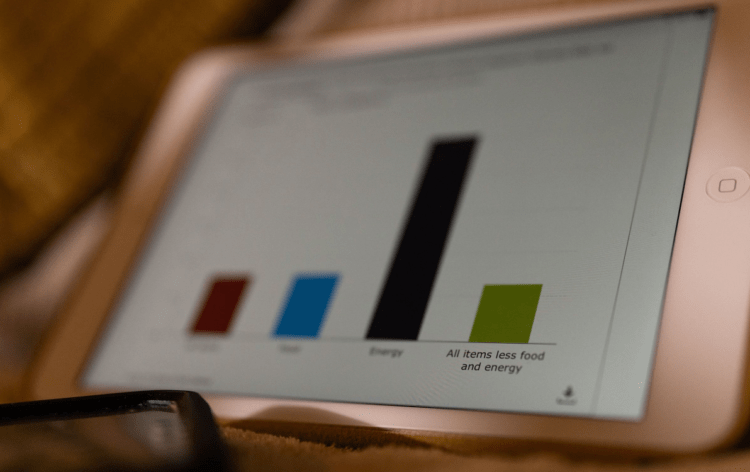Investors on Alert as Upcoming Economic Data and Inflation Metrics Could Impact Stock Prices

The stock market has always been a topic of interest for investors, with fluctuations and trends constantly shaping the financial landscape. However, one aspect that has been garnering increasing attention in recent times is the impact of inflation on the stock market. As we move into 2023, investors are looking for insights into how inflation may affect the stock market in the coming months.
Rising inflation can lead to an increase in stock prices, as investors look for assets that can provide a hedge against inflation. On the other hand, high inflation can also lead to a decrease in stock prices, as it can impact consumer spending and reduce profits for companies.
The recent situation in 2023 has been marked by a rise in inflation, with the Consumer Price Index (CPI) showing an increase in prices across various sectors. As such, investors are keenly watching the stock market to see how it responds to these inflationary pressures. In this article, we will explore the recent situation for stocks and inflation and provide insights into how investors can navigate this complex landscape.
Interconnection Between Stocks and Inflation
Inflation and stock prices are two important factors that are intricately linked in the financial landscape. They both impact and depend on each other in various ways. On the other hand, stock prices refer to the value of a company’s stock or shares.
Moderate levels of inflation can help boost stock prices, as it indicates a growing economy and increased consumer spending. This leads to higher profits for companies, which in turn, can lead to an increase in their stock prices.
Elevated levels of inflation can adversely affect the stock market by reducing consumer spending and lowering the profits of companies. This can lead to a decline in stock prices, as investors tend to sell their shares to prevent potential losses.
Let’s take a look at some examples to understand the interconnection and interdependence of inflation and stock prices. In the 1970s, the USA faced serious problems with inflation rates. This resulted in a decrease in stock prices, as investors became wary of the impact of inflation on the economy. However, in the 1980s, inflation rates dropped significantly, leading to an increase in stock prices and the growth of the stock market.
Another example can be seen during the COVID-19 pandemic, where the Federal Reserve implemented measures to boost the economy, resulting in increased inflation rates. This led to a rise in stock prices, as investors saw the stock market as a safe haven against inflation.
Moreover, the impact of inflation on stock prices can also vary depending on the industry. For example, sectors like technology and healthcare tend to perform well during times of inflation, while industries like energy and utilities can struggle due to rising input costs.
In conclusion, the interconnection and interdependence of inflation and stock prices are complex and dynamic. Investors need to carefully analyze inflation rates and the performance of different industries to make informed decisions when it comes to buying or selling stocks.
Recent News from the Stock Market
As the week progresses, investors are keeping a close eye on the release of upcoming economic data. On Tuesday, U.S. stock futures saw an increase in value, with Dow Jones Industrial Average futures rising by 0.16%, or 54 points, while S&P 500 and Nasdaq-100 futures climbed by 0.2% and 0.3%, respectively.
During Monday’s session, the Dow added 0.3%, or 101.23 points, while the S&P 500 increased by 0.1%. However, the tech-heavy Nasdaq Composite slipped by 0.03%. Investors are eagerly anticipating the release of the consumer price index, set for Wednesday, and the producer price index, which is scheduled for Thursday.
The release of both inflation metrics could potentially offer valuable insights into the Federal Reserve’s approach to adjusting interest rates, according to Keith Buchanan, a Senior Portfolio Manager at Global Investments. He added that while the market seems to suggest that peak tightening is in the past, the data still needs to confirm this.
Buchanan believes that the market is waiting for the data points to come in before making any further decisions. In addition, Wall Street is approaching another season of earnings announcements. Buchanan added that he expects this earnings season to be interesting, especially for big financial institutions, as it will provide a window into whether they will make any adjustments in an environment that seems less optimistic than it was three months ago.


























Comments (0 comment(s))